A tour through the 'floating island' that 100,000 Rohingya refugees may have to call home
"Nightline" traveled to Bangladesh to cover the overwhelming migration.
Miles off the coast of Bangladesh, deep within the Bay of Bengal, is a low-lying, flood-prone island that the Bangladeshi government hopes to be the new home for the hundreds of thousands of Rohingya refugees who fled violence in neighboring Myanmar.
It’s called Bhasan Char, which translates to "floating island." Few have been allowed to see the island up close but "Nightline" traveled there with construction workers who are building structures that will eventually hold up to 100,000 Rohingya.
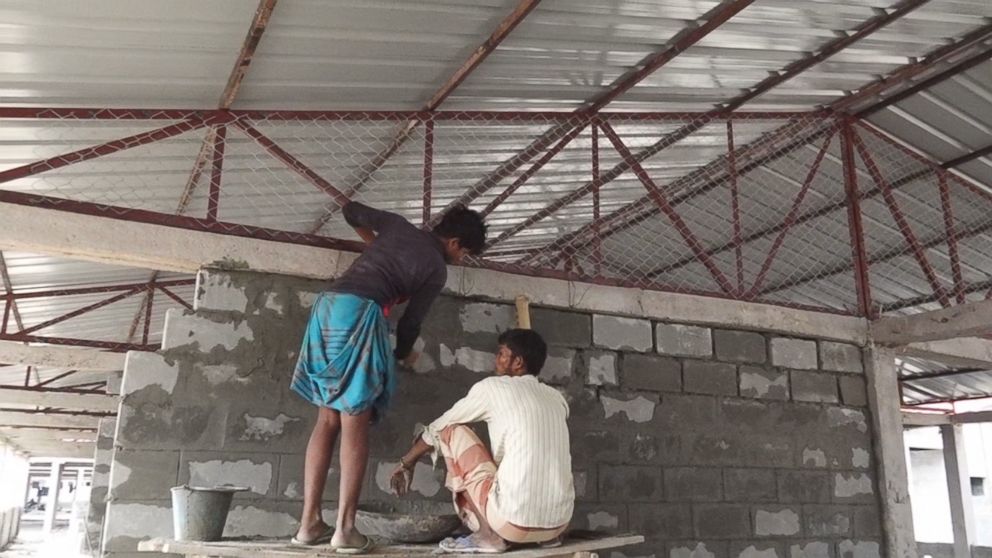
Bhasan Char is more than two hours away from the nearest inhabited island and 24 miles from the Bangladesh mainland. Bangladesh’s decision to move the Rohingya there has become controversial due to its remote location, potential isolation and concerns of extreme flooding from monsoons.Through traveling with construction workers, "Nightline" was able to visit some of the structures that are being built on the island. There was row after row of red-roofed buildings containing sleeping quarters with bunk beds, where the workers said it would be four Rohingya to a room. A watchtower overlooked the complex, which is surrounded by a man-made canal.
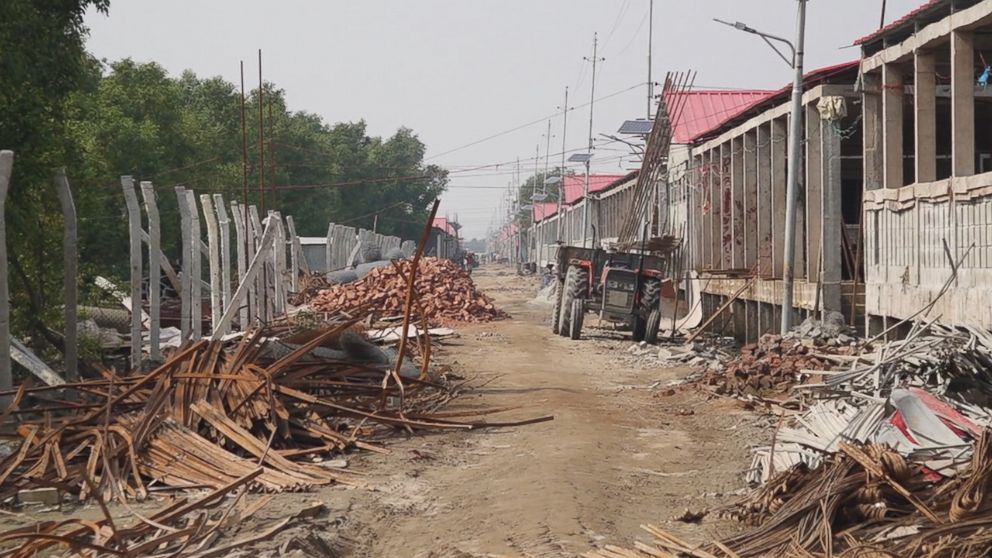
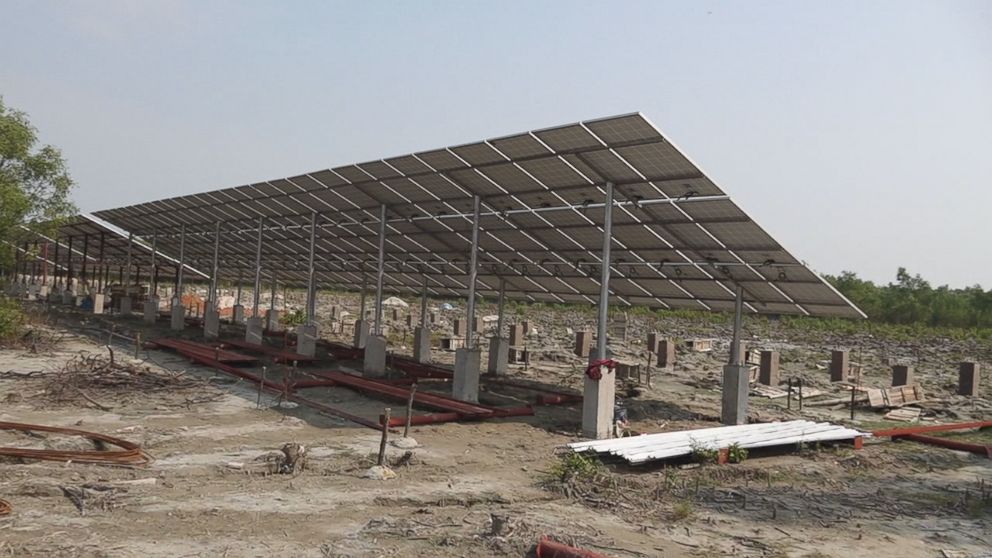
But many of the Rohingya refugees told Woodruff that, having already fled one place, they do not want to be moved again, especially to the place that some activists are calling a "prison island."
The Rohingya are an ethnic Muslim minority who have been forced to flee from their homes in Myanmar, also known as Burma, to escape horrific violence against them there. The United Nations has since called their persecution “textbook ethnic cleansing” by the mostly Buddhist Myanmar army.It’s estimated that nearly 10,000 Rohingya have been killed, according to a recent UN-backed report. The report details gang rapes, the torching of hundreds of villages and enslavement of Rohingya communities at the hands of Myanmar’s military. UN investigators have called it genocide.
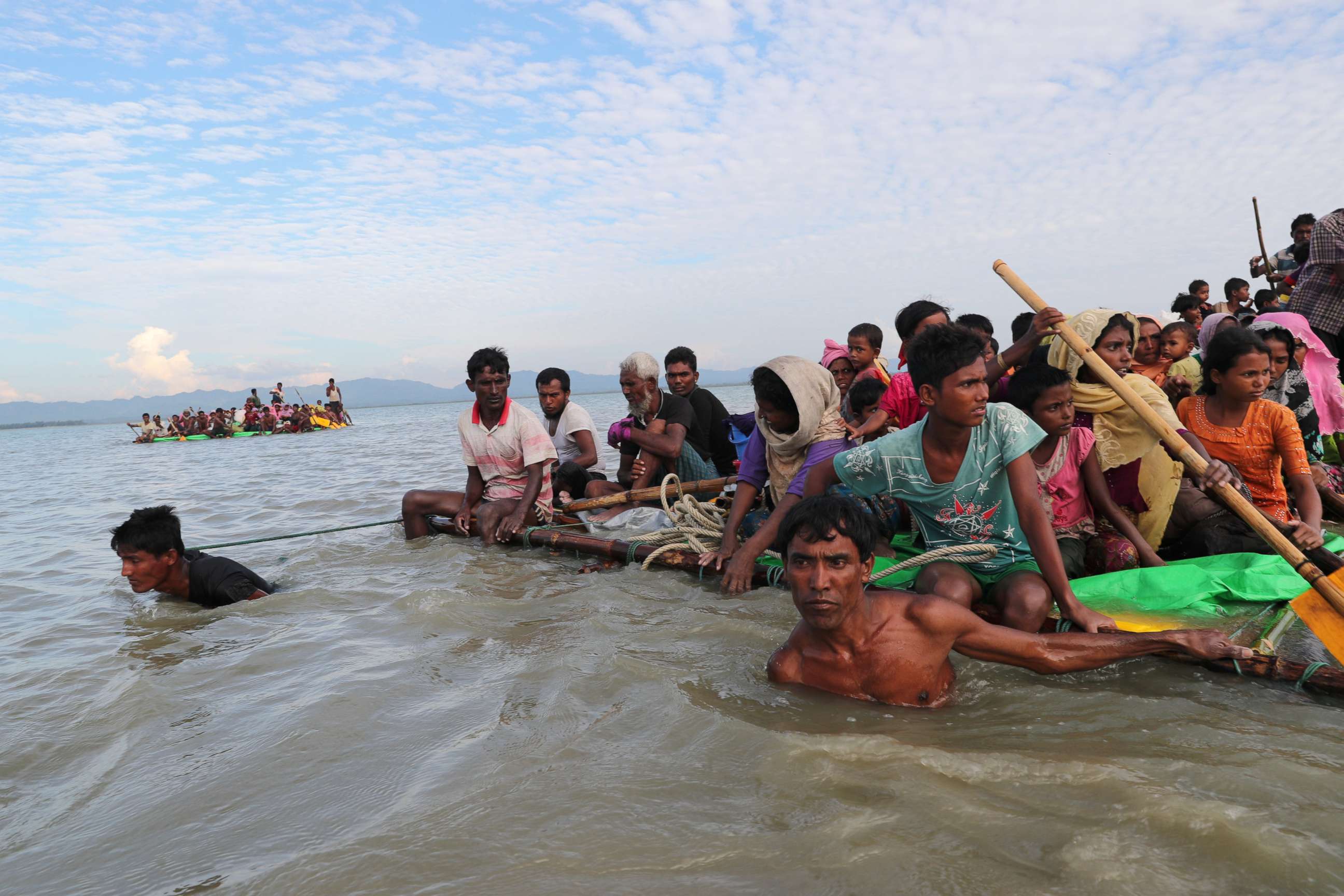
In October, Myanmar and Bangladesh signed a deal to start repatriating some of the over 723,000 Rohingya refugees, but the UN, the United States, and 42 humanitarian and civil society groups raised concerns that the deal would repatriate Rohingya refugees, possibly without their consent, and send them back to dangerous conditions.
As of August, there are approximately 919,000 Rohingya refugees in Bangladesh. Most currently reside in camps along the country’s southern border, according to Doctors Without Borders.
Now with refugees outnumbering the local Bangladeshi population, the Bangladeshi government has been looking for a solution and began working on turning Bhasan Char into a home for them.
But many of the Rohingya "Nightline" spoke with now living in Bangladesh, already victimized once, say they do not want to be moved to that island.
"I came to Bangladesh to save my life. I didn’t come here to eat or stay. We want the international community to punish the Burmese and send us back," said Klas Ahmad, a refugee living in one of the camps. "If we get sent to the island, the Myanmar government might bomb the island and we won’t have graves. At least if I die here I will get a grave."
"I want to go back to my country," said another refugee. "I don’t want to be in this country and I certainly don’t want to go to that island."
However, some of the construction workers working at Bhasan Char suggested that it the living conditions on the island are better than the harsh conditions of the camps.
"People like us who don’t have proper houses, of course we would want a place like this," said one worker, who lives on a neighboring island.
"We haven’t got anything," said another worker. "The island we come from keeps breaking."
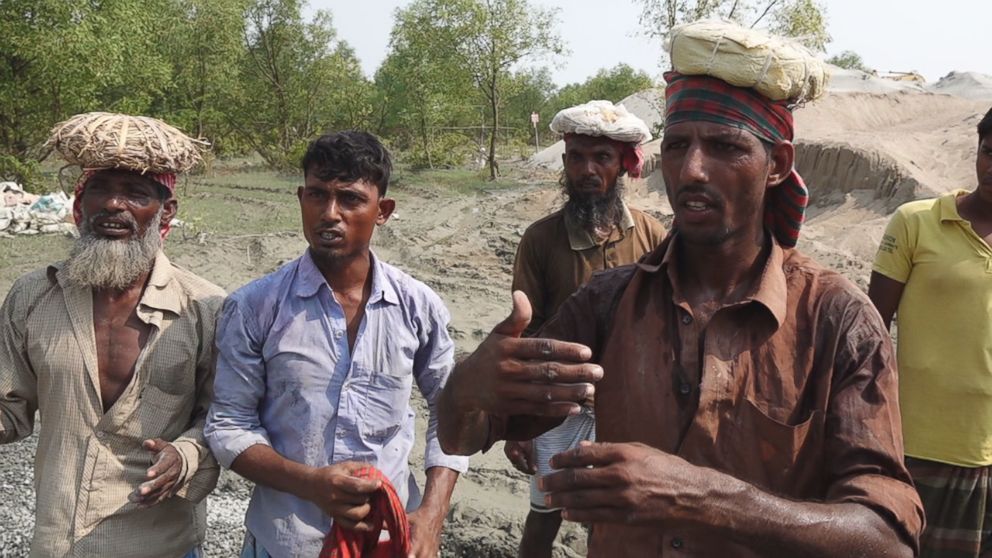
Bangladesh’s government has defended its plan to relocate the refugees.
"The island is something else," Bangladesh’s Foreign Minister Abdul Hassan Mahmud told ABC’s Bob Woodruff in an exclusive interview. "If it takes longer, then we have to do something because the camps are quite difficult to run also."
The plan has since been widely denounced, so, for now, the Bangladeshi government has postponed the move.
"Nightline" has documented the plight of the Rohingya for the past three years. Last year, Woodruff traveled to Bangladesh as hundreds of thousands of Rohingya fled across the border in Myanmar. But as the camps became overpopulated, security inside has become an increasing concern.
The Rohingya, fleeing for their lives in Myanmar, head for Bangladesh
One of the refugees, Kalim Ullah, is among a group of volunteers who patrols the camps for protection and said one day he and his neighbors awoke to find their camp on fire."The fire started at 2:30 in the morning," said Kalim. "Around 30 families lived in this part and it took 20 to 30 minutes for it to all be burnt down to the ground. We had to run and could not take any of our possessions."
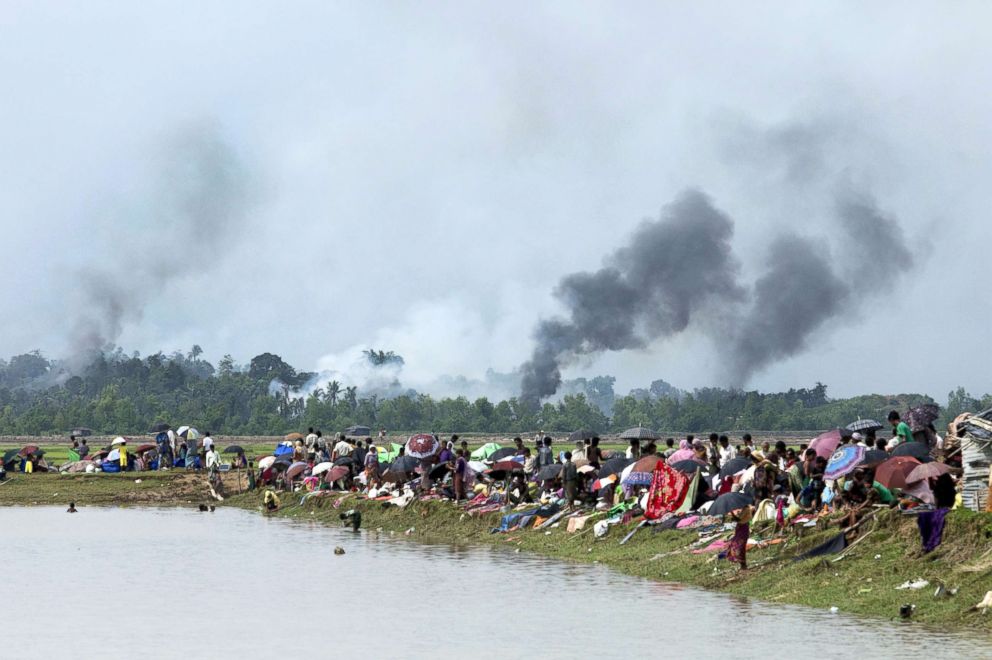
Women are often among the most vulnerable. Dr. Sadia Afroze, who works at a barebones women’s health clinic inside one of the refugee camps, told "Nightline" that she has had to perform an increasing number of abortions – many of them for rape victims.
"They may survive but their lifestyles are not that much good with a pregnancy or a child — so in that case, we save a life by giving the services," Afroze.
Afroze says her clinic has also delivered hundreds of babies. The World Health Organization expects 60,000 children to be born in the camps this year alone.
Despite the dangers in the camps, some refugees said they would rather choose death than face the prospect of being forcefully repatriated to Myanmar.
“If we are forced to go we will commit suicide by drinking poison,” said one refugee named Alam. “We have already collected poison. Otherwise the government of Bangladesh has to shoot us dead.”
For the Rohingya, as plans are postponed and renegotiated, an unclear path lies ahead. There is nowhere perhaps that this uncertainty, this limbo, feels more acute than a small strip of land on the border of Myanmar and Bangladesh called No Man's Land. There, thousands of Rohingya still technically live in Myanmar, far from the Rakhine State that was their home. There, thousands of Rohingya still technically live in Myanmar, though far from their former homes in Rakhine State. They live in ramshackle shacks and children bathe in the small channel of water that separates the two countries.
Their leader, Dil-Mohammed, could speak to ABC News only by crossing the single bridge over to Bangladesh. In a small, crumbling watch tower there are guards and armed military to prevent anyone else from crossing over into Myanmar. The Rohingya who are able to pass, refuse to cross over into Bangladeshi refugee camps even with the aid that is provided to them.
"We don’t need any food, we don’t need any ration, we don’t need any assistance, we want our safety returned under UN protection," Mohammed says.
Mohammed managed to escape his village after he said it was burnt to the ground. Four people died and his own son was shot by, he said. He scoffed at Myanmar’s denial of any role in the violence, blaming not just the military but also "local Buddhist extremists."
"Traditionally any one who commits crimes against humanity, they never confess that they are guilty," he said.
So for now, he and his people must wait to be able to go back to their homes with full citizenship and the ability to practice Islam openly and legally.
"This is not our land," he said. "Our lands are in Myanmar, we are all Myanmar citizens." He added, "We want to go back to our own homeland."




